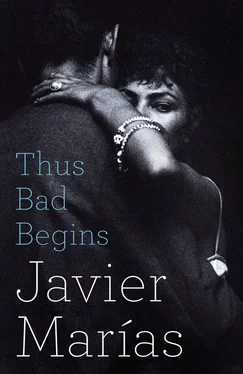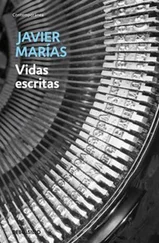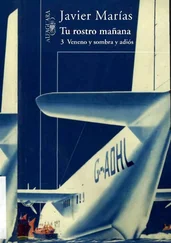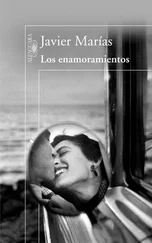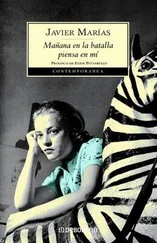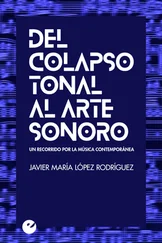‘Well, I’m very glad to see you in better company than of late. I was beginning to get worried,’ he said almost as soon as he saw me. And holding out his hand to the Professor, who often appeared in the newspapers and even occasionally on the television, he added warmly: ‘An honour to meet you, Professor Rico, author of Small Man’s World .’ Vidal was well read, or at least attentive and with a retentive mind.
Rico held out one languid hand (he had a cigarette in the other) without bothering to get up, and could not resist correcting Vidal:
‘You mean Man’s Small World . Why on earth would I write about a small man? I leave that to the author of Tom Thumb or The Hobbit , assuming you know what that is.’ He was already being rude, or heading in that direction. The Hobbit was not particularly well known in Spain at the time. ‘And you, sir, are?’
I made the necessary introductions. Vidal sat down with us, abandoning the two men and two women, possibly colleagues, whom he had been with at the bar. He waved his almost empty glass at a passing waiter, indicating that he should bring another beer to our table, where he was clearly intending to stay for a while.
‘What do you mean “in better company”?’ I asked anxiously, the usual response to a brotherly reproach. ‘We haven’t seen each other lately, in fact, not for ages.’
‘You may not have seen me, but I’ve seen you, two or three times. And the reason I didn’t come over or make myself visible was precisely because I wanted to avoid the utter bastard you were with. What are you doing going around with a man like that? It’s one thing me having dealings with the man, because we worked at the same clinic and he was a colleague, but you don’t even have that excuse.’
Then the penny dropped. Vidal must have seen me with Van Vechten on café terraces, in discos or bars. As I mentioned earlier, in 1980, the whole of Madrid went out at night, regardless of age, respectability or profession.
I was slightly put out, but only slightly, after all, my mission, now cancelled, had been to ascertain more or less whether the Doctor was what Vidal had just said he was, or had been in the remote past. I was about to bombard him with questions and listen to his answers, but Rico, for whom the penny had not yet dropped, got in before me, filled with a doubtless prurient curiosity:
‘So who is this utter bastard young De Vere has been fraternizing with? This is news to me. Come on, out with it, Dr Vidal, I love hearing about dirty deeds, even contemporary ones. They pale into insignificance beside the classics, of course, but it’s better than a poke in the eye with a sharp stick, so chocks away and let the dog see the rabbit.’ He had a penchant for idioms, sayings, proverbs and the like; some of which he invented or used in a way that was incomprehensible to me, I couldn’t understand what those chocks, dogs and rabbits were doing there. He topped off his request with one of his indecipherable onomatopoeia: ‘ Fúrfaro .’
‘Why is he an utter bastard?’ I finally managed to ask. ‘As a doctor? That’s not what people usually say about him. He’s an expert in his field. And everyone says how well he behaved in the 1940s and 50s. I’m sure you’ve heard that too. It’s true, isn’t it, Professor? Isn’t it true that Dr Van Vechten helped people who suffered reprisals after the War? Like your own family, José Manuel, you must know that. There are loads of testimonies to that effect.’
Vidal drew his chair closer to the table and lowered his voice a little, mainly, I assumed, given what he told us — although I assumed this only once I’d heard what he had to say — because we were in the Salamanca district, which, even now, is heaving with Nationalists nostalgic for the late dictator, even more at that time, when he’d only been dead for five years, which, to nearly all of us, felt more like twenty — so quickly, impatiently and eagerly had he been dispatched and forgotten.
‘Yes, I know the story. That’s the official version, the favourable version, the legend that has lingered on and which has suited him perfectly because it’s meant he could be accepted everywhere. He’s always played both sides off against each other, with no preference for either. He’s clever, I can’t deny that.’
‘Come on, Dr Vidal, spill the beans. I’m all ears,’ said Rico contentedly and as if the story were intended for him. He didn’t seem to care two hoots or give a fig about his excellent relations with Van Vechten (those absurd idioms are as infectious as swear words, once they come into your mind).
‘Look, Juan.’ Fortunately, Vidal was still addressing me, with an expression that seemed genuinely concerned, even reproving. ‘I don’t know if you’ve heard, but I now work at the Hospital Anglo-Americano. Dr Naval took me with him when he was asked to take over as director there less than a year ago, and so we both left the Clínica Ruber, where he was the medical director and where I’d set up the ECG unit. Anyway, Naval had spent a lot of time in Chile. He fled after the coup led by Pinochet because he was a prominent supporter of the Socialist Party, and he knows more than any of us about what people got up to here after the War. The people who left Spain after the War have put far more effort into finding out and remembering that kind of thing, whereas here we know almost nothing — well, it’s so much easier to cover up uncomfortable facts. It’s odd that Dr Bergaz, the owner of Clínica Ruber, who was an ardent franquista , should have appointed Naval as medical director, but that will give you some idea of how good he is. Lots of tales were told at the clinic, as happens everywhere, especially with a young man like me asking lots of questions. As you doubtless know, given your apparent friendship, Van Vechten worked as a paediatrician there for nearly twenty years; that’s where he gained his reputation, and he still often drops by and he gets on very well with the staff there.’ — That was the clinic Van Vechten had told Muriel to phone from the Hotel Wellington, because it was the closest one, saying: ‘They all know me, I’ll give any further instructions when I get there.’ — ‘Dr Naval is very discreet, but he couldn’t even stand being in the same room with Van Vechten when he turned up at the clinic, slapping everyone on the back; he knew all about his past and couldn’t resist telling me. Mind, he’s not the only one who’s told me things about him. I corroborated the stories later on, even with some of his biggest fans, who were full of admiration for what he’d done, at least for the first few years. Dr Teigell, for example.’ Another foreign surname, it looked German to me when, later, I saw it written down. Vidal pronounced it Spanish-style: ‘Teihell’.
‘Listen, Doctor, I’m expected for lunch with three bores from the Real Academia,’ Rico broke in rudely, looking at his watch. ‘You’ll either have to cut a long story short or I’ll arrive late for my appointment and they’ll have their claws out for me already. Which they tend to do anyway. So get to the point and don’t stuff my head with a load of useless names I can’t retain. So far, you’ve told me nothing new.’
Luckily, Vidal was a good-humoured fellow. He had instantly cottoned on to the Professor’s style and rather liked it. He didn’t take offence at all, but smiled.
‘José Manuel,’ I said, ‘are you sure you don’t mind the Professor hearing all this? I warn you, he’s not known for his discretion.’ This was a way of reclaiming the story, which was in principle intended for my ears only, Rico was merely a kind of stowaway.
Vidal laughed and happily agreed with him:
‘The Professor is quite right, I’ll get straight to the point. And if he hears it and tells other people, I have no problem with that. On the contrary, all the better. Van Vechten’s hypocrisy is enough to rile anyone, as is that of his pal Arranz, another rich and famous paediatrician. There’s not much you can do against such established reputations, but any reputation can be undermined a little, and the more people who know about his lies … well, at least then they’ll have to think twice before boasting in public about their noble behaviour.’
Читать дальше
